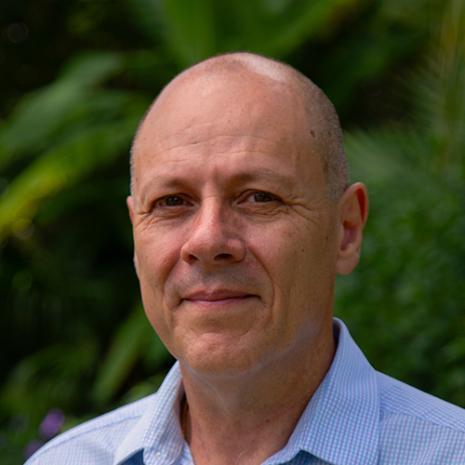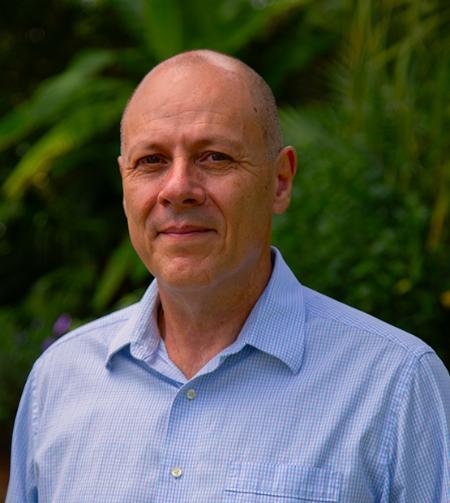
Dr. Wagner A. Vendrame
Professor
Ornamental Micropropagation
and Cryopreservation
Dr. Vendrame leads a broad research program focusing on production and conservation of ornamental plants using plant tissue culture and cryopreservation techniques, including orchids, ornamental trees, foliage plants, palms, and other ornamental plants. In 2007, he partnered with NASA on an innovative research project to evaluate the growth, development and differential gene expression in plant cells of jatropha (Jatropha curcas), a biofuel species, as affected by microgravity, with five spaceflight studies on board of the space shuttles Atlantis, Endeavour and Discovery, and the International Space Station National Laboratory. More recently, studies have focused on cryopreservation of orchid seeds, protocorms and pollen, palm seeds, and banana in vitro shoots; and large scale propagation of plants using temporary immersion bioreactor technology, including micropropagation of orchids, bromeliads, sugarcane, banana, papaya, palms, and caçari (a tree native to the Amazon rich in vitamin C). Dr. Vendrame teaches Orchidology (ORH4280), Orchid Biology and Culture (ORH5282), Orchid Short Course (ORH1283), and Special Topics. In 2021 Dr. Vendrame will be teaching Micropropagation of Horticultural Crops (PLS4242C/5241C).
-
RESEARCH
Dr. Vendrame conducts basic and applied research on production and conservation of ornamental plants using plant tissue culture and cryopreservation techniques. Species studied include orchids, ornamental trees, foliage plants, palms, and native, rare and endangered species, among others.
Cryopreservation: Cryopreservation techniques have been used for preservation of orchid seeds, protocorms and pollen, palm seeds, and banana in vitro shoots. Micropropagation and Bioreactors: Tissue culture techniques have been used to develop large scale micropropagation of plants using temporary immersion bioreactor technology. Biofuels: Studies with a biofuel crop has been developed, whereby a germplasm collection of over 100 accessions of jatropha (Jatropha curcas) was established to evaluate reproductive characteristics, genetic diversity by using molecular markers, and selection of superior parents for hybridization.
Space Biology: Innovative studies involved the evaluation of growth, development and differential gene expression in in vitro cell cultures of jatropha under microgravity. Studies were established in five different spaceflight experiments in partnership with NASA, including the International Space Station National Laboratory and the Space Shuttle Atlantis (STS-135). Medicinal Plants: A new study has been established to evaluate best management practices for saw palmetto, a plant used for its medicinal properties in the potential treatment of benign prostatic hyperplasia.
Micropropagation: Tissue culture techniques have been used for the development of protocols aiming at large-scale in vitro clonal propagation of several ornamental species. Current projects involve the micropropagation of varieties of Cordyline, Monstera, Clerodendrum, hemp, palms, flowering trees, and native species. Our goal is the development of feasible protocols that provide high multiplication rates in vitro, high quality in vitro-derived plantlets with well-developed roots and shoots and successful acclimatization protocols for transplant to the greenhouse, shade house or field at high rates of survival.
Light Quality: Recent research projects were initiated to optimize the in vitro growth environmental conditions by evaluating new lighting technology. We established studies with LED Grow Lights to improve light intensity and quality for in vitro cultures. The use of LED Grow Lights allows for high light output for vegetative growth in vitro providing a full spectrum white light with dimming capabilities. This allows us to adjust the light intensity for each specific species and therefore optimize growth conditions.
-
TEACHING
- Orchidology – ORH4280 – 3 credits – Spring odd years – online – undergraduate
- Orchid Biology and Culture – ORH5282 – 3 credits – Spring odd years – online – graduate
- Orchid Short Course – ORH1283 – 1 credit – Spring even years – undergraduate and graduate
- Micropropagation of Horticultural Crops – ORH4242C/5241C – Fall odd years – undergraduate and graduate
-
EDUCATION
- Ph.D. Horticulture University of Georgia 1998
- M.S. Plant Physiology and Biochemistry University of São Paulo Brazil 1994
- B.S. Agronomic Engineering University of São Paulo Brazil 1987
- PUBLICATIONS
-
RECENT SERVICES AND HONORS
- UF-IFAS Term Professorship 2019-2021
- NACTA Educator of the Year 2019
- 2019 SIVB Service Award
-
LEADERSHIP AND PROFESSIONAL ACTIVITIES
- FSHS Sectional Vice-President for the Ornamental, Landscape & Garden Section 2020-2021
- ASHS Cross Commodity Publication Award Committee 2019-2022
- ASHS Bioenergy Crops Professional Interest Group Secretary 2019-2020
- FNGLA Miami-Dade Chapter Board of Directors 2018-2020
- LEAD21 Alumni Program 2018 – Present
- POLA – Preparing Organization Leaders in Agriculture 2019
- Roche Teaching Scholars 2019

